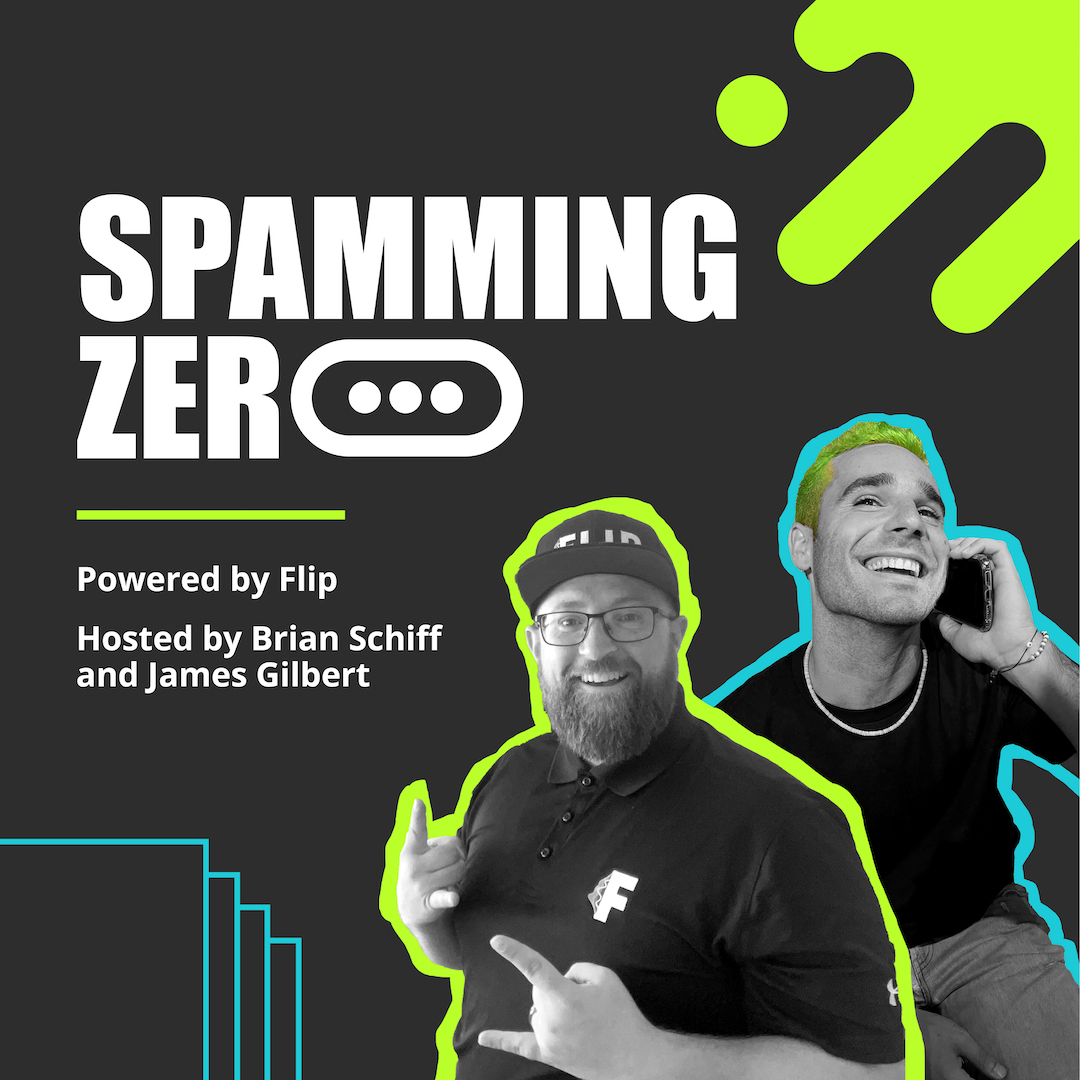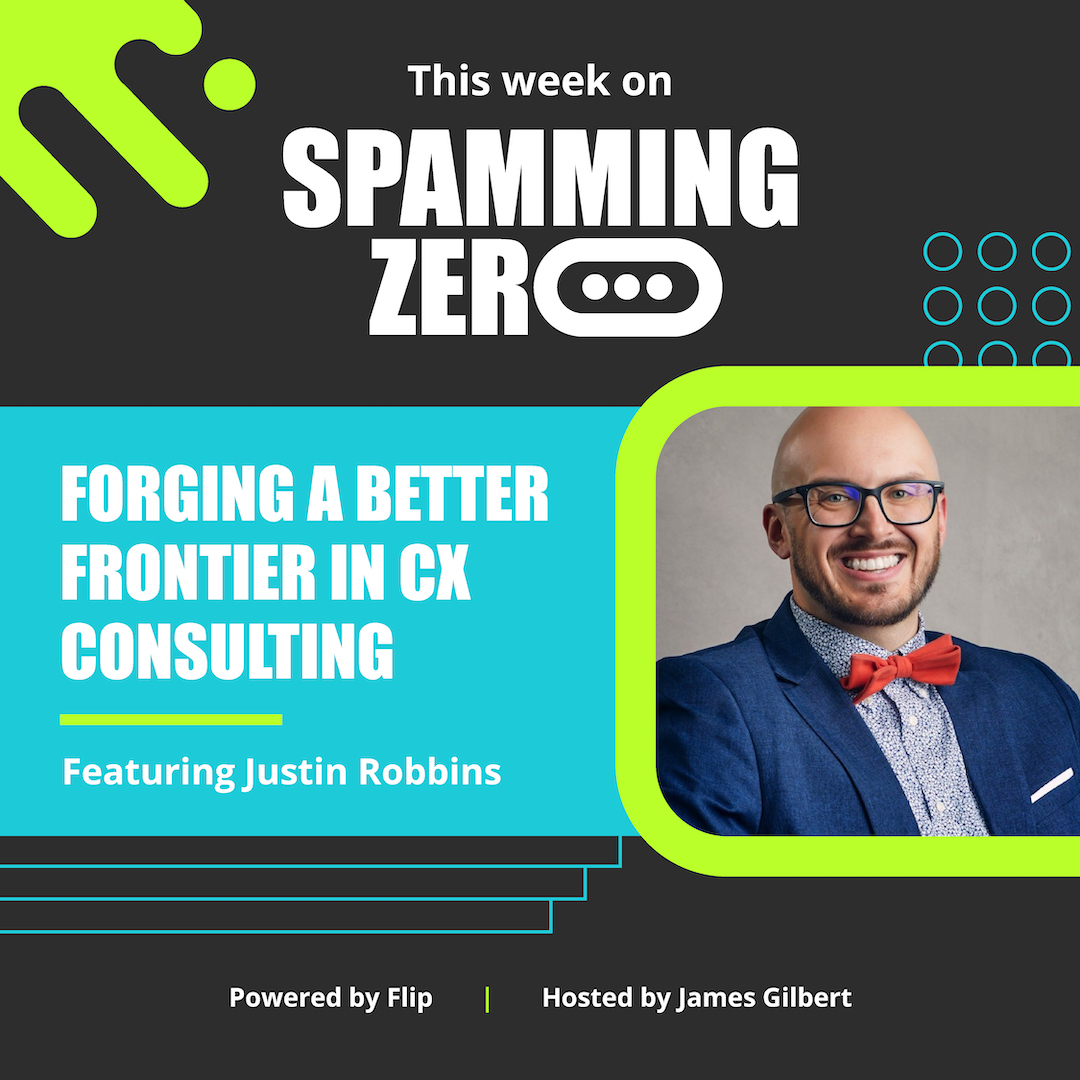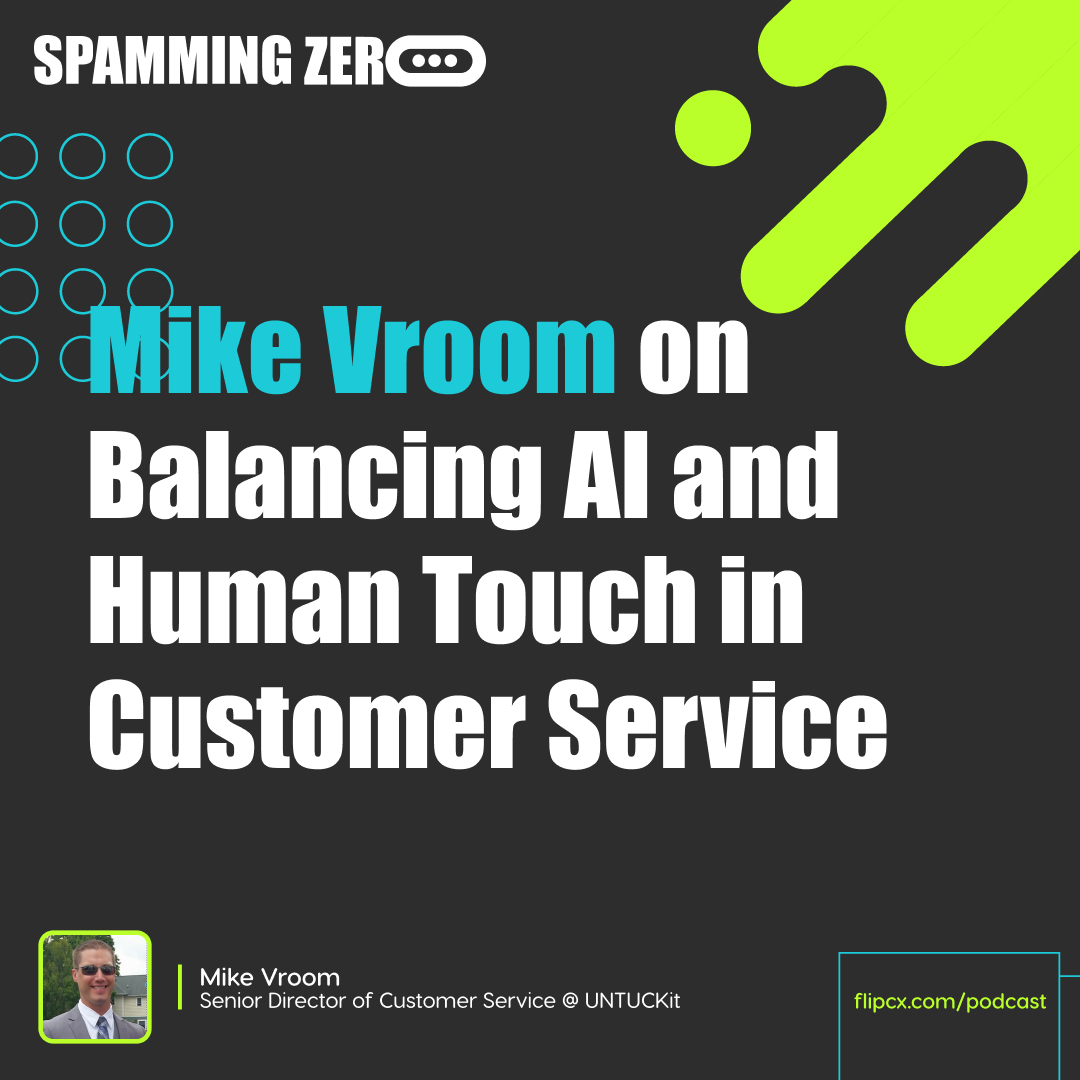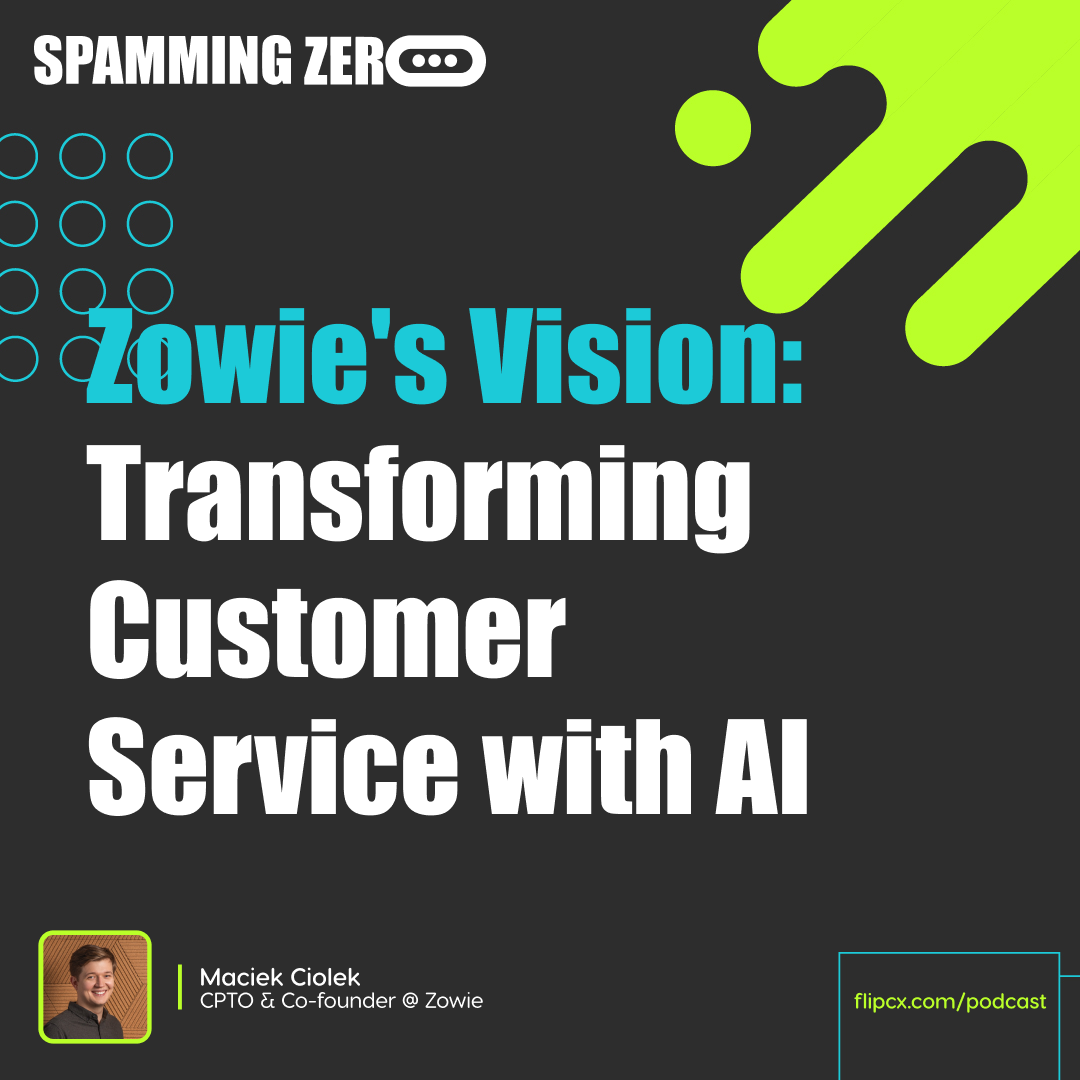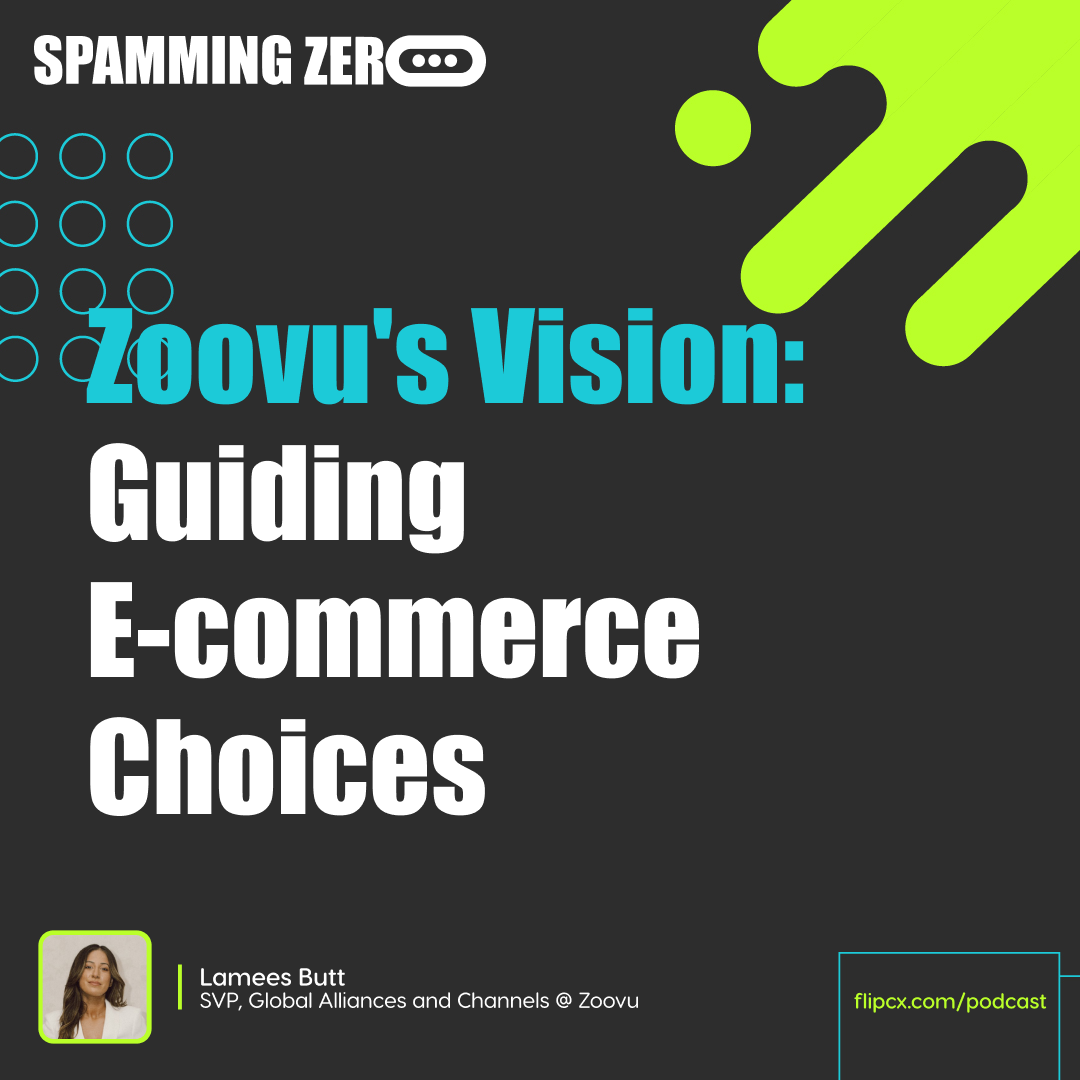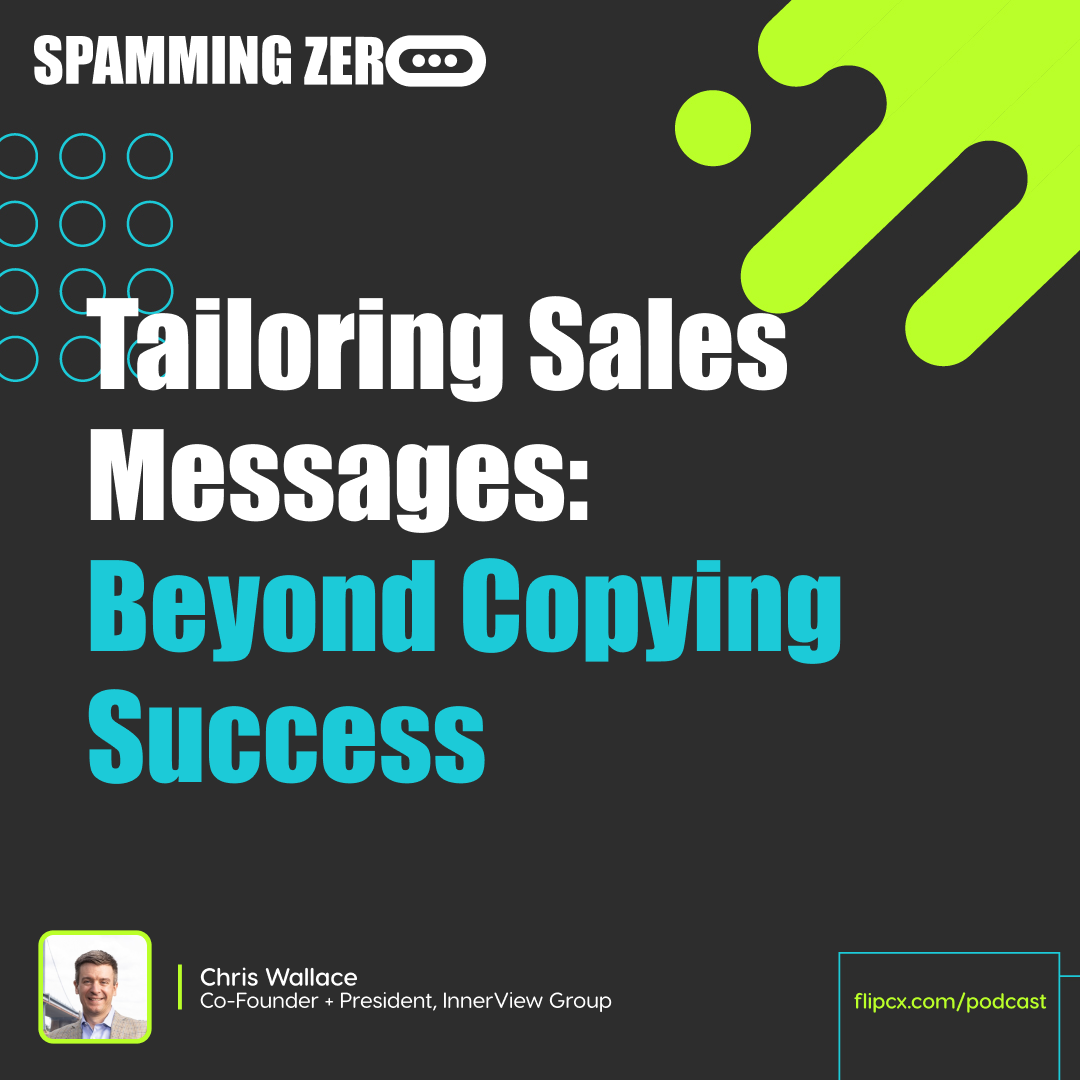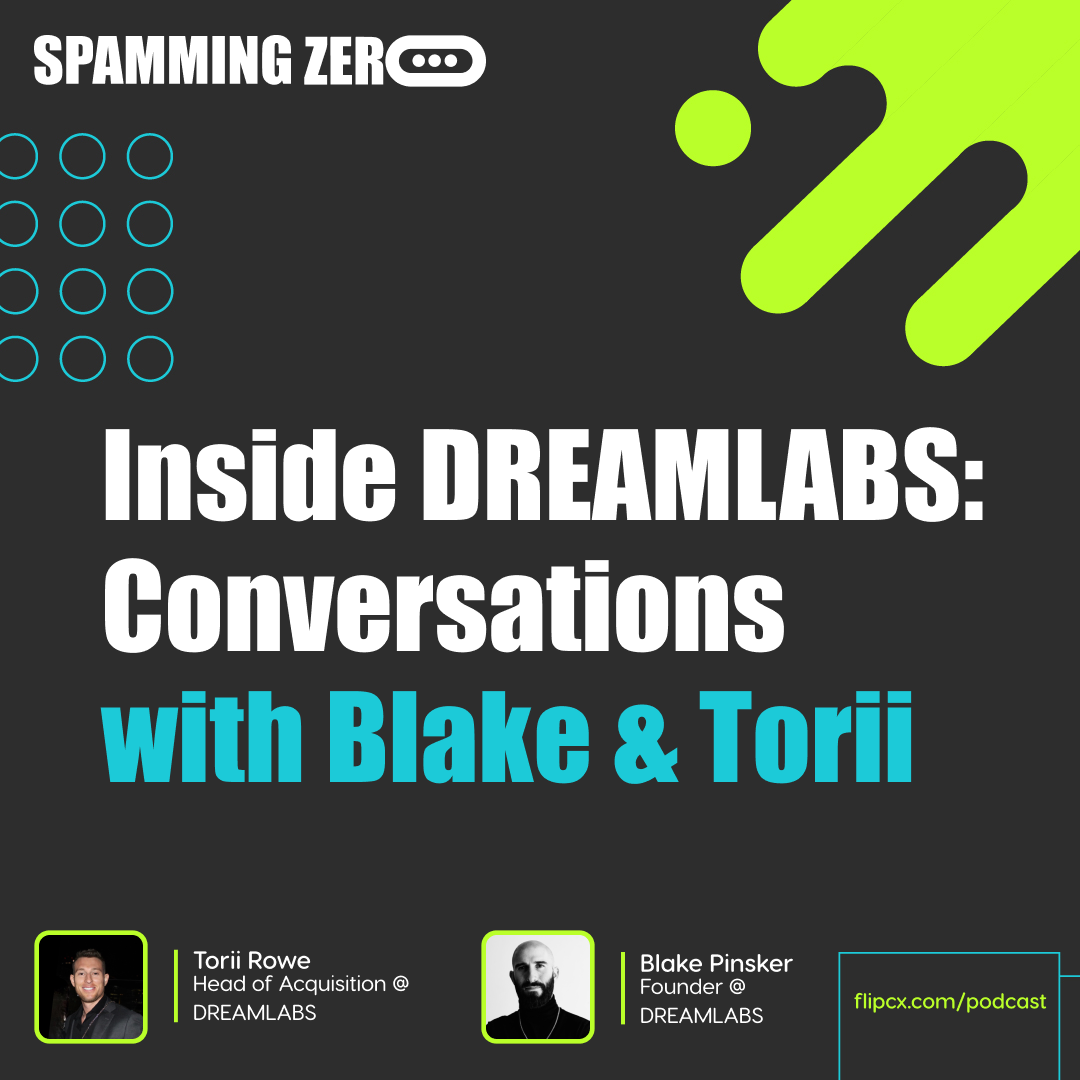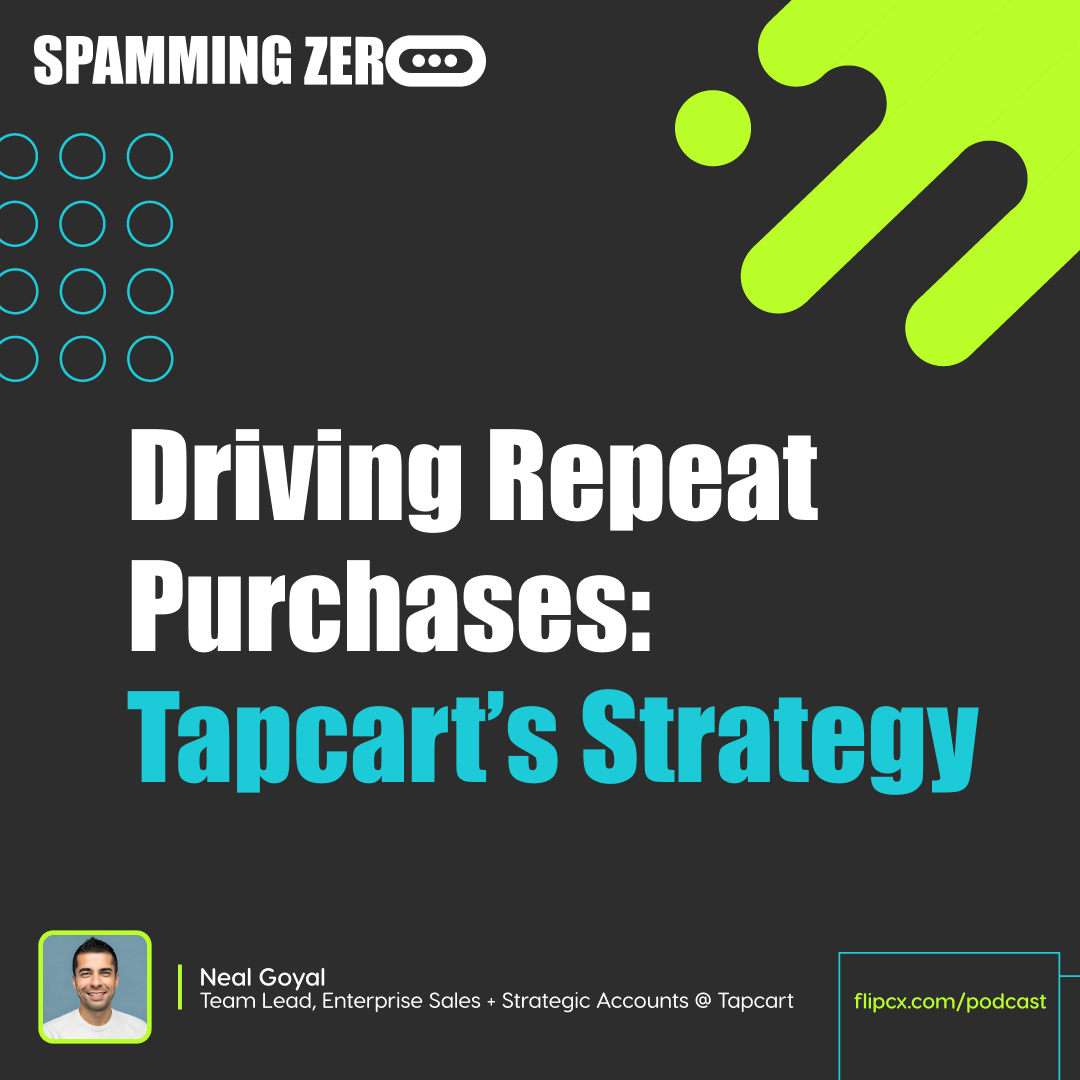Episode 47: Forging a Better Frontier In CX Consulting with Metric Sherpa's Justin Robbins
- 0.5
- 1
- 1.25
- 1.5
- 1.75
- 2
James: May's sponsor of the Spamming Zero podcast is ttec. com. T Tec is a customer experience firm that focuses on several different industries, but one in particular is retail and e- commerce to all of our listeners out there. Their website, again, if you need the phonetic spelling of that, it's ttec. com, T Tec. I love what they have on their About Us page, the power of big and the agility of small. They're a big company, but they have the agility to do a lot just like a small company does. I also love it the fact that they're in six continents, 50 languages. Employees globally, 69, 000, and their client NPS is plus 71. Pretty awesome. Couple of other things about T Tec is they're customer obsessed, digitally empowered, and outcome focused. Some of the CX solutions they offer are customer care outsourcing, so if you need to a BPO, they can be your partner, contact center outsourcing, as well as CX solutions and strategy. Reach out to ttec. com. I'm James.
Brian: And I'm Brian.
James: And this is Spanning Zero. Hey everybody, welcome to another episode of Spamming Zero coming at you every single week. We hope we don't bore you. I mean, we try to make these things really entertaining and fun, but if we are boring, I want you to tell me, maybe we will do some more crazy things. Today we are joined by Justin Robbins. I'm super excited about this. If you're not familiar with Justin, Justin has a wealth of experience across the contact center. He has a wealth of experience when it comes to customer experience, but more importantly than that, he's one of the very few people that I know that looks incredibly good in a bow tie and you will be seeing him right now. He is in a bow tie. He looks so good in a bow tie. I can't pull off a bow tie. I've tried. I don't know if it's the beard. I don't know what it is, but Justin, how do you pull off the bow tie?
Justin Robbins: You probably haven't found the right bow tie yet, James. That's my bet. I never intended to really get into bow ties. Bow ties happened to me. I didn't happen to them. That's an entire nother podcast.
James: I want to hear this story for real someday, so you're going to have to tell me about it. Justin, tell the audience a little bit about who you are, a little bit of your background, what you just started, which I'm sure like everyone is going to be really excited to hear about, so talk to us a little bit about that.
Justin Robbins: My background, I've always thought of myself as a bit of a customer experience mutt. I started in operations and worked in a number of roles from contact center, retail, restaurants, hospitality. If it's serving customers, I've probably had to do it in some capacity. Had the opportunity in 2012 to leave the role I had working in Hershey, Pennsylvania, the sweetest place on earth, and got to go be part of a business that had global training and consulting teams for contact centers. Spent some time in the training and consulting role, eventually moved over to leading their research content community, all sorts of other things, and then started a six year journey in 2017 to better understand technology companies. The reason I did that then James was I recognized that I wanted to be a consultant. I wanted to be independent in some capacity and I had lots of experience running customer service and support teams or guiding them as a consultant, but I'd never worked on the technology side and I knew, and we see this continue to play out. Technology is such an important role of what's happening in customer experience. I felt that it was a disservice to not understand how do technology companies build products? How do they think about their go- to go- to- market approach? What keeps them up at night? All that kind of stuff. Then about a year ago, there was this thing that had been sitting in the back of my head that started waking me up before my alarm every day. It started being the thing that stopped me from falling asleep at night, and it was this desire to finally go out on my own full time. I'd dabbled I independently since 2017, but I never cut the cord and kind of went into free fall is the way that I've been describing it lately. So the new thing that you mentioned is Metric Sherpa and it's stepping out as an independent research and advisory firm. The way that I've thought about it, James, is there's this really interesting convergence happening with people, process, and technology across the customer experience. You and I are going to talk about that word a little bit later as something that bothers me, but what I didn't see was anybody who had the unique seat of having run customer service teams, having consulted customer service teams and also worked with technology companies, nobody's really taken a step back as a analyst or as a consultant applying experience in those three disciplines. So that was really the genesis for me. Where do I specialize? It's really three things. One, it's contact center strategy, two is customer service operations, and three is customer experience technology, and I think of those as the tools that we use to understand and serve our customers.
James: I love the idea of this company you've created because one of the things that I hear so much about with people on this podcast, with people that we talk to at Flip is it's incredibly difficult to understand unbiased opinions of technology. So many places actually I saw somebody comment or do a LinkedIn post the other day about this Forbes article that one listed the... Yeah, you know exactly which one I'm talking about that listed a bunch of technology vendors. And don't get me wrong, some of them are great, as a matter of fact, we partner with most of those folks, but I find it incredibly interesting because I also deal with this as a CMO, not related to specifically the contact center type of technology, but just technology in general. I can tell you firsthand, one of the things that I dislike so much about just analysts in general, and I know that you're creating a different type of breed, which is what I love. One of the things that I dislike so much is how biased it is. It's a pay to play. And just to give our listeners a little bit of context here, back in 2021, actually it might have been 2022, one of the two, I was on this call with a bunch of other CMOs. There was 180 of us on this Zoom call. The topic was about analysts. It was about the gardeners and the foresters of the world, and there was not one CMO that believes what they put out. There was not one CMO that likes working with them, and there was not one CMO that felt like that they produced unbiased content and research and feedback, not one, and I'm talking about 150, 180 CMOs that are across all walks of business, not just specific to B2B, not specific to B2C. It's all over the place. And that was very telling to me because I was like, man, am I the only one that feels this way? Do I really have to fork out a hundred thousand dollars to be on the report? And so I love the fact that you're taking this and you're taking a different approach to it, which is an unbiased view of you need to have practical experience and you need to have been in the weeds and done the work, and then you need to take some of the consulting side of that. How do you look at this from a 30, 000 foot view and how do you make it more tactical and approachable for everyone? So I'm excited for you. I'm excited for people to learn about what you're doing there and see what happens from it.
Justin Robbins: Thank you, James. Gosh, there were I'd say three things that were tugging at me and took this idea to reaching a boiling point or whatever you will. One is, and let me put this disclaimer first. I know both the independent analysts and the ones who work for the billion dollar companies that you've mentioned as well, and everyone covering the space, they are genuinely good people. They have really interesting and unique perspectives, but it also is, from what I saw, I felt a model that depending on what your business is about and what you're trying to achieve, they're not right for everyone. And for me, as someone who is especially when I was in- house at a technology company, I was often challenged by some of the programs. Either they were cost- prohibitive or they really weren't aligned to what I was trying to do. And if I was at a business and I was trying to actually gain truly independent perspective on a topic, sometimes I got that. But then I also was left to hold the bag in terms of enabling my internal teams to really understand the problem that was being discussed, to see that it wasn't just talking about theory or secondhand advice. That I think was the biggest piece for me is many of the analysts, especially independent analysts that have been covering contact center and to a certain extent customer experience. But even there, there's a gap in independent analyst coverage. A lot of it's just contact center. They've been doing this as an analyst for a few decades now. A lot of them come from either infrastructure backgrounds or marketing backgrounds. Very few were practitioners or running these operations themselves. So I felt that that was important. I thought that, gosh, there's lots of people who have lots of... And there's value I think in all the different flavors of analysts, even if the CMOs you talked to didn't agree, I just saw a level of value that I was wanting more of that wasn't out there today. So I mean, that was the biggest piece of it for me.
James: Well, I think every one of those CMOs, if they felt like it was a more unbiased approach and not a pay- to- play in every situation, I think every one of them would find value in working with an analyst. I think the problem generally on that call, and many others since then has been everyone feels like you have to fork out an incredible amount of money just to be included in the discussion. And I remember, not to belabor this at all, but it's just very interesting to me. I remember when I was the CMO at CRM Next, we had a very specific CRM for financial services and there was not a category for that in Gartner and Forrester at that particular time. And we all know the biggest CRM in the world is Salesforce. And let me tell you the analyst calls that I had with Forrester and Gartner during my time there was a complete joke. They could not get off Salesforce at all and thought Salesforce was the cat's meow. But what we were hearing and what I dealt with consulting people on that platform, literally just like you with customer service, was that Salesforce was actually causing so many problems from a GTM perspective. They didn't care about their customers enough to create a good experience for people. So they were allowing large organizations like the Cisco that I went to have a million different instances of the exact same platform causing downstream ripple effects, issues with revenue streams, no ability to have cross- functional data that could actually empower different functions. And this was because Salesforce didn't care, but yet here they were as the number one CRM that the biggest analyst firms in the world continue to talk about. And this was also telling me because it told me, one, I've been doing this a long time now and I definitely have had to work with the analysts in a positive way. But I mean, for the most part I find it incredibly telling that there are people that I respect like you and others that are creating their own version of analysts and things like that. And I think one of the things that has helped a lot with it is community and the communities that are being built. People don't trust an analyst report as much as they used to. I can tell you when we were at CRM next, almost no one that we talked to in the credit union space knew who Gartner and Forrester were. So that's telling. A big chunk of the market that is specific, they don't even know who those people are. But we're oftentimes asked as leaders in organizations to participate in those things because we feel like it gives us a POV and a position in the marketplace that is necessary. And all I hope is that you and others that are trailblazing that can change that because I think that it is a fundamental thing that people I know in roles mine have an issue with. Let's shift gears.
Justin Robbins: Yeah. One last thing I'll mention on that, James, before we do that is you exposed to key vulnerability. It's that analysts can't just talk about technology, people and process because what you mentioned was the downhill effects of what happens after technology. And that to me, I think even as we think about the rest of our conversation today, that's what really I want all of us as business leaders to be mature in our mindset is technology becomes more of a pervasive part of every day and conversations. I don't care what the technology is, we have to continue to root ourselves in understanding people and process. Because when we do that right, technology can step in as an amazing enabler.
James: 100% agree. Which leads me to my next question and I'm excited about this because I think that you're going to provide some really great insight here. I always like to ask people to come on this show to tell me their hot take right now, to tell me one of the things that they fundamentally believe and are passionate about that others might disagree with. What is that for you right now?
Justin Robbins: Something that has been a thing for me for a while is calling things what they are. I have observed, especially among marketers, I don't know if we're enamored or we're just trying to show that we've got creativity and capability, but we often just make things more confusing. Donald Miller, an author and came with a great marketing framework called StoryBrand, and their whole tagline was, if you confuse, you lose. And I believe that a lot of businesses are very confusing in the way that they talk about things, in the way that they describe things. And my hot take and where that's manifesting right now is around the term customer experience to the point that it boils under my skin when I see people use that phrase with a, I know unintentional, but a complete misunderstanding of what they're talking about. Or maybe just they know that they don't know, but they continue to do it anyway, which maybe is even more offensive for me, but that's the thing that I'm most passionate about and that maybe I die on that hill is getting really clear about when we say something is customer experience, what does that actually mean? And that's in terms of what is the customer experience technology, what is a customer experience strategy or not? And maybe the bigger part of it is the look, don't try to call it customer experience because you want to fit in. If what you do is a customer service tool or what you do is... I don't care. Tell me what it is, don't use this blanket term because to me you're generalizing in a way that is harmful, not helpful.
James: I love it. I feel like we need to have a discussion outside the podcast and get your opinion on what we're doing at Flip because we call ourselves a CX tool for different reasons that we could maybe get into another time. But I do like this because there's been a few episodes that we have talked about where marketing traditionally does cause those downstream effects and then it's customer service that's expected to pick up all the pieces and figure it out. And I even went out on a limb on that show to really call out all marketers and be like, if you're launching a campaign and you haven't involved your customer service team, that's a massive mistake. And I think we need to do that more. We need to be more intentional as leaders in marketing and those that are executing against campaigns and things. Even offers, I think we need to provide more insight and we need to provide an ability and opportunity for the customer service teams to consult us on those things. What are we going to run into that we aren't aware of right now? Quite frankly, customer service, they have that insight more than anybody in my opinion. I don't know how you feel about that.
Justin Robbins: So I think there's two parts of it. One, they say that our perception of something is most influenced by the peak moments and the end of it, it's called the peak end rule if you look at the research about it. And what I think in terms of customer experience and an understanding and awareness of all of those things that you talked about, whether it's the marketing campaign, whether it's the web app, that was because now you've got a mobile development team whose that's another different department. If they have an issue or if your fulfillment team has an issue, which is another part of the customer experience or the group that you have manufacturing your product, all of those things can treat to customer experience. Why do I get excited about, and it's not even just the contact center, to me it's all of the customer communication points because that's where this stuff shows up. It's not necessarily the contact center. It might be the help desk at the university that students walk up to talk about these things.
James: That's a good point.
Justin Robbins: So that to me is what is interesting about this and why do they have that level of knowledge? Because all of those problems when they bubble up, if the product breaks, I don't have a direct line to your product team. If my shipment is delayed, I don't have a direct line to the truck driver or to the distribution center. We've got to funnel that into a point, and that point is often the contact center or it's self- service tools or whatever it would be. So I do think there is a level of understanding that exists there that outside of a true chief customer officer as someone who would have full visibility and even that person at an executive level, they're not going to have the granularity of all of these things falling down. And that I think is what really matters more than anything is understanding where's their tension points, where's their friction, where are things falling down? Yeah, I guess, gosh, I'm giving you the trainer's answer to your question of just going on and on here, but that to me is why can it be confusing, but why is the contact center important? I think that all of the peaks, they're the ones who often find out when those moments are happening.
James: So Justin, let's break this down a little bit for our audience, I'd like you to take a lens and a position with what you're going to respond with. As we talk to direct to consumer brands who are primarily those who listen to this podcast, tell our audience and our listeners what steps can they take to do exactly what you're trying to do, which is get rid of the idea of making customer experience fluffy and really actionable.
Justin Robbins: If I look at the number one reasons, the number one reasons, the top reasons why customer experience fall short, it is often the result of a promise was made and not kept. Nothing was said, so no expectation was set, which means then the customer manufactured an expectation or something actually went wrong, a product broke, a system failed, whatever. As simple as it sounds by saying it, where do I see organizations struggle with is they're not doing effective root cause analysis. They're not looking to why are people contacting their brand? Where are we able to identify points of friction and then address them. It's really that simple. But what's complicated is maybe it's aggregating the data to actually know what is the number one reason why people contact your brand. I mean, maybe it's complicated. It feels like these days it's less and less conflict. People should know the answer to that question. So if you know the answer to that question, then the next question is, what's stopping you from doing something about that? And there are a number of potential barriers that I love, and I'm forgetting the source right now, but I didn't come up with this, so I'm attributing this to someone way smarter than me. They talk about three types of barriers as situational, dispositional, and oh my goodness, now I'm blanking on it as I tried to pull it out. But dispositional is how you feel, your perceptions, it's attitudes. The reason we have this issue is because we're not providing the full policy to the customers. Well, what's stopping us from providing the full policy to the customers? Well, the people who are responsible for delivering the policy don't agree with it. They think it's stupid, whatever it might be. That's dispositional. Situational might be things that have to do with the actual environment where service is delivered. And the other... Institutional, there it is. The other institutional is that's the way we've always done things mindset, if you understand number one reason people are contacting you and you've got to figure out what's preventing you, it's going to be one of those things. It's going to be institutional, it's going to be situational, it's going to be dispositional. And then you've got to get to work at overcoming whatever that is. If people are frustrated because the cap keeps breaking on your product, how are you identifying that and getting that to the team responsible for resolving the issue? If people are frustrated because you gave them a delivery date of April 15th and consistently you're delivering six weeks after that, either change the way you communicate the expectation or figure out what the heck is going on with logistics and get it resolved. That's it. So when it doesn't get done, it's because someone in the organization has either chosen to not address it or they've figured that the cost of not doing it is a far more attractive option than investing and resolving it. And I think that's probably a shortsighted strategy that won't work out in the long term. But look, the breakdown isn't any more complicated than that, but it gets very complicated when you get into a situation, you start to look at, well, who are the people involved? What are these institutional things that are holding it back and that's easier said than overcome just because there's baggage. There's baggage everywhere and that's why it's not been solved. It's like it's that simple. We should just be able to say, we don't like bad customer service, so let's make it better. But we don't.
James: What's interesting is the number one thing that people talk about when I ask them the question on this podcast, and if you've listened to this podcast, you've heard it yourselves. I always ask our guests, tell me about an experience that was memorable for you with a brand. And we'll ask that question for you Justin too. But the number one thing that people say is, oh yeah, I was so impressed this brand just solved my problem. That's literally it. I even did a LinkedIn post about this today. The bar is low and I love the framework you just put together because we see this all the time at Flip, people don't even know why people are calling. So we basically we're like, oh, well maybe we should just give them a free analytics tool so they can see the caller intent right away. And that's massively valuable to a ton of people and we give that away for free because we think it's that important. You do need to understand why people are calling. Now there are vendors that offer technology that can help us analyze these things and have been doing it a long time. So in some cases like for us at Flip, we know the majority of people that we work with on in e- commerce traditionally have the three highest reasons why people call is a WISMO, so where's my order? Two, it's a cancellation. And three, it's a return order. And those are the three most common across all of our customers. And we see that even when we bring on a new customer, it's very rare that the three are not those three. However, there's still others. And to your point, going through the process of what you just laid out with the framework is a great way to understand,, one, what they are from a situational perspective. Two, understanding what institutionally you need to change within your organization, and then three, how you actually go about doing that and execute against it. So I love this framework that you've put together. I mean, you should charge for that man in your new thing.
Justin Robbins: James, the hard part is it's... Go back, it's the people and process stuff. Like the technology is out there, but doing something with it in a meaningful way and figuring out how do we justify the cost because there's always trade offs. There's always trade offs to even if we understand the problem to get the change, I think about the top three things that you mentioned. Where's my order? That's a communication. If that's the number one reason why people are falling short or number one reason why people are contacting you, then you are failing at effectively communicating with your customers. That's it, so the question is it worth overcoming that? What's the trade off to doing that? How easy is that to make it happen? Anyway, all that to say you were like, hey, you should charge for that. That to me is the value of consulting. I've got a client that I've been talking to who they know they've got upwards of$50, 000 a week in inefficiency in their organization. They just don't know how to find out where it is and that's where it is valuable to have someone who's coming and actually seen these things and knows where to look because often we're so emotion, we don't even know where to start. We know it's there, but where do we start? And once we find it, how do we get all of these people we work with every day to be convinced that this is the best thing? And that's the weird part about it. Sometimes it just takes somebody from the outside saying, this is the best way and this is why, and this is what you can expect from it.
James: Also, to your point there, there's so many customer experience professionals that are put into a role for the very first time. Customer experience as a role itself really... I mean, I could be wrong here. I've said this several times so I don't think I am, because I've never had anyone argue it, but really like 2012, 2013, 2014 is really when it started becoming a specific role like the CXO and the VP of customer experience. Really like that timeline is when it started becoming a thing. And what we've seen since then is more and more companies that believe in customer experience and believe that they need to do a better job at it but don't know how to go about doing it. So most of the time what they do is they hire somebody in a customer experience role and they say, go figure it out. That's literally what happens more often than not. And then individuals are expected to go out, learn a job that's really never been done before, which is why there's so many problems with customer experience and being fluffy. There's so many problems with people being able to get budgets for the things that they need to do. There's so many problems with, by the way, that being the very first thing that needs to be cut.
Justin Robbins: Yeah. James, you talked about the importance of community in this and I guess I'll say the ambiguity in CX work. That was one of the things that attracted me to CX Accelerator and now I'm on the advisory board of, and it's just a nonprofit, really slack community for people who are navigating all that because you're right, so many people get tossed into this work and we see everything from people who their job is to do customer journey mapping or they're doing consumer research, they're designing webpages. Or like you mentioned, they got hired and it's like, hey, here's this big tangled knot of things. Make sense of it all, will you please?
James: I want to talk about the CX Accelerator community for a little bit because I actually think this might have been, in my mind, the very first CX community that existed. I could not find anything before this. What has been the biggest value that you have found, not only being part of the community but now helping lead it?
Justin Robbins: So when I was at ICMI, we had started Tuesday ICMI chats and it was on Twitter 1: 00 PM Eastern every Tuesday, and it was just a place where we were asking questions and engaging people who were doing the work in dialogue. And out of it spun all of these deep friendships and a core community of people who just, whether we were in conferences or whatever, just got hungry for more community. That's the best way that I can do it, and I remember meeting Nate Brown who's the co- founder of CX Accelerator at his first ICMI event, and he was one of the people that you just talked about in terms of doing customer experience work, he was trying to find other people who are solving the same problems. And he realized that there were communities like ICMI was great for contact center leaders, but it wasn't just that and he tells this better than I can, but it really came out of a place. There is nowhere for people like me to connect with people like me and if it doesn't exist, I'm going to create it myself. What's been awesome for me to watch as part of that community that now is several thousand people and it's like every week we're watching a couple dozen people being introduced in terms of new people. I've watched people land jobs as a result of the relationships that they've built in there. To me the what's exciting and rewarding about is it's just how generous people are with their expertise with their networks and all of that comes from just a willingness to be open and vulnerable. And gosh, wanting to give help to others and not being so prideful or arrogant to not ask and accept what others are willing to give back to them. So that's been it for me and I see the Belonging to the Brand book behind you, which I'm digging into right now, talking about the power of community.
James: It's a good one.
Justin Robbins: Yeah, just that to me is it's like seeing people at their best is what's been most rewarding to me and figuring out something that is ambiguous and is complicated and has the potential to deliver tremendous value. And every time we see someone recognize that and be able to deliver not just value back to their organizations, but ultimately they feel more value in themselves as a result of that, that's the best part of it.
James: I have been a part of the CX Accelerator community. I think it might have been one of the first 50 in there way back when Nate started it. I've been more of a lurker. I find incredible insights just reading through some of those chats and seeing where people's challenges are, seeing how others are responding to them. I need to be more active in there for sure. But I love it. If you are not part of a community yet, I highly recommend checking out CX Accelerator. It's great. It's got fantastic people in it. And by the way, I think it's important if you're looking for a community that you don't just find a community that's specific to your own industry. Here's why. I do think there's value in being in communities that are just unique to the industry that you're serving, but I think it's incredibly valuable also to see how others approach things in different industries because this can allow you to think outside the box and think about how you can apply it to the industry that you're focused on. That was a big mistake that I made really early on in my career, is staying narrow focused with industries that I was connecting with. And it didn't happen until I really got a really good feel for what it's like for a B2C company and how they approach the experience until I really started understanding, holy smokes, it's a whole different ballgame and how we can think about that and apply it to B2B and things like that really helps in my opinion my career progress a lot faster. So I love that there are so many different types of people in different types of roles, but the same type of general consensus in that community. Highly recommend it. Justin, I'm going to ask you a couple more questions before we get off.
Justin Robbins: Yes.
James: I always find it interesting when we are looking at the market right now and the trends that are happening. We can't get away from AI, you can't even get away from it. It's in every discussion. So give me your hot take on AI right now. What do you love? What do you hate about it?
Justin Robbins: First off is the fact that we're just using the blanket term AI. It says a lot about the general maturity of the market. I was at a conference last week and somebody made a similar remark to that, and it's true. We say AI and customer experience, it's a million different things. So what am I excited about? I think that we've got a long way to go and there's lots of really cool potential and I can dream big about the value that it could provide in augmenting work and life and helping us experience the best in. To me, I think is the biggest hope is how does that free us up to experience the best in what we're created to do? And so that James, after the fact, you don't have to just edit a podcast and do a bunch of things, but how might AI augment that for you so that you can show up and do some really cool things in terms of having the conversation, but then nobody has to do the stuff on the backend that is monotonous or frustrating or maybe it just causes us to stretch muscles that we don't really ever have to stretch. That to me is the exciting part, just about the potential, that's what I love about it. What do I hate about it? The same thing that I hate hated about omnichannel and big data and first contact resolution is the early side of the hype cycle is just at nauseum. And I was at a conference last week and, oh my gosh, James, I'd walk up to the booth and they'd want to, hey, can we talk to you about our generative large language omnichannel solution for millennials? No, I'm just making that the last part of, but it felt like buzzword bingo for sure. That to me is what I don't love is I don't love the... I don't know if it's like we feel this obligation to have to talk about it, but that's just what kills me. It's like I want to hear from it from some people, but not everybody's an expert on it. Most people aren't, so I don't want to hear from those people that I think that makes that worse. That to me is what I don't like about what's going on with AI right now is every... It's like other things. Everybody has one.
James: And by the way, you are 1000000000% correct. AI is very broad, and I use it loosely on this podcast because generally speaking, most people lump it into a single thing, but it's much bigger than that. I agree with you. It's really become a buzzword and a buzz term. Funny story, it was my third day on the job here at Flip, and we were in San Diego and it was all of us on the marketing team, and we were doing a messaging and positioning exercise with our CEO. And our CEO comes in and he's like, " Hey, James, I'm going to tell you all the buzzwords that I hate." He's like, " Game changer, don't do it." And he lists a bunch of buzzwords. So we decided to be funny. We created two variations of our messaging and positioning, and we said, all right, one variation's going to be the real thing, but we're only going to show Brian our CEO the variation that has all of the buzzwords. It was a really fun exercise, but what was telling about it is it literally sounded like so much of our competition, and I was blown away by that because we were looking at different competitors that compete with us and things like that, and I was like, my goodness, I can't believe how many people actually use all these buzzwords. So we've made a conscious effort to make sure that we're not doing that, to speak simple language. We're all human beings. Why do we have to fluff it up with all the technical terms and try to make it sound cooler? Just say what it is.
Justin Robbins: Yeah. Yeah. I worked with a marketer who I love, he did this exercise that I've since borrowed and done other places. He took the copy from this company's website and then took it from 15 of its competitors, and it was their messaging around something. He removed the company name and it was a matching exercise. On the left, you had all of the company's names, and on the right you had all the messaging and took the marketing team in a room and said, okay, can you differentiate who said what? And the light bulb moment was, in most cases, people were saying the exact same thing. So again, to me it goes back to confuse. If you confuse, you lose. If you can't differentiate, how do I distinguish? How do I know? I don't.
James: Justin, who's the marketer? Was it Baker?
Justin Robbins: It was not Baker. No. Baker's a great marketer.
James: Who was it?
Justin Robbins: This was a friend of mine named Chandler.
James: There you go. Yeah. Maybe we'll drop in the show notes on how to reach out to Chandler.
Justin Robbins: Yeah, we can do that. He's a smart guy.
James: Okay, Justin, last question for you. As I promised, I ask everybody that comes on the show the question of tell me about an experience that was memorable for you.
Justin Robbins: When you first asked me that question earlier, I had thought of one, and then you were like, hey, we normally get examples. And it's like they just solved my issue and it made me realize, so this was... I'm going to give you two. You didn't ask for two, but I'm going to give you two quick. So this was in the early days I'd say, of web chat and capabilities like that. I was blown away. I placed an order and I started chatting with the agent on the website, and they easily at that time, and this was years ago, they were-
James: Which means it was significant if it was years ago when this happened.
Justin Robbins: Yes. And they were like, oh, you know what? To help you. It'd be better off if we just had a conversation and I couldn't click to dial, but they're like, hey, call or we'll call you. I don't even remember now. Anyway, what blew my mind at the time was it actually was the exact same person I was chatting with that I was on the phone with and the context and how they maintained this wasn't happening, say it was 10 years ago, and it probably was 10 years.
James: Omnichannel Justin.
Justin Robbins: So when you gave him a first example, that stood out to me because it was the very first time, and again, this was a long time ago that I interacted with a brand that actually they did an effective job of moving me across channels. The one that actually jumps out to me though, so my wife and I, this was in 2010. We lived in Pennsylvania at the time, and we were doing a road trip down to Disney and Florida, and along the way we were visiting friends in the Raleigh area in North Carolina, visiting friends in Nashville. And when we got to Raleigh friends that we were with, we had gone to see a hockey game, and we were going to dinner before the hockey game, then never been to California Pizza Kitchen. And at the time, I was on a massive California Pizza Kitchen kick. I posted on Twitter that we were taking friends to California Pizza Kitchen for the very first time and had taken a picture of us outside of the location, didn't think anything of it, sat down to dinner. While we're at dinner, the manager comes over to our table and said, okay, this has never happened before. We just got a call from our corporate office that told us to look for a guy that matched your description and bring you two of our new cheesecakes that we're releasing this week to your table.
James: That's cool. That is really cool.
Justin Robbins: It was really neat. It jumped out. I've shared that I probably should connect with somebody at California Pizza Kitchen and I haven't. And I mean, I have shared that story from the stage in front of thousands of people just in terms of finding little moments to surprise and delight. And that's what that was for us. We are no one to them. I think I had my Twitter account for two years at that point. You know what I mean? It's like there was nothing special about it. And the fact that they did that for us just made it remarkable. It stood out. And even now I still fondly think about the California Pizza Kitchen because of that experience.
James: Here's what I'll say too. I think very often when we think of these little moments like California Pizza Kitchen just took, we think we have to scale it across every customer. That's not totally true because Justin has shared this with now thousands of people, and they did it with one customer. So I think sometimes we get caught up in the scalability of how we can create those little moments. And actually what we just need to do is occasionally do them with some people and make sure that we make it memorable. And when we do that, there's virality to that, and eventually over time it becomes a little bit easier to scale because then we have process behind it and people behind it. So I think that that's one little nugget I just want to leave our audience too is just remember, you don't have to think about this every single time, I have to boil the ocean here. I have 100, 000 customers I got to do this with. No, that's not true. Do it with a hundred instead of 100,000. See what it does for your brand.
Justin Robbins: Yeah. And to the point of something we said earlier, James, it's getting the little things right consistently. That's the stuff that scales and would actually differentiate brands, but it's a matter of doing the little things right consistently, which sadly isn't the case for a lot of businesses, which is why we all still struggle and have the experiences that we do that frustrate us that cause us to spam Zero.
James: Totally agree. All right, Justin, we're at time. Where can the audience and listeners find you and learn more about your new company?
Justin Robbins: Yeah, absolutely. Can learn more about the new company at metricsherpa.com. Can find me on LinkedIn, Twitter, Instagram, you name it at Justin M, like Mike Robbins.
James: Awesome. Thanks for joining us today, Justin.
Justin Robbins: Cool. Thank you. James.
James: If you haven't yet subscribed to the podcast, please do so. Give us a rating as well. Reach out to me on LinkedIn if there's somebody that you want to have on the show that you think would be awesome. Also, if there's topics that we have not yet discussed on the podcast that are burning your ears and you really need some help on them, also reach out to me there because we can find guests that can talk on those things. So let us know. Thanks again.
DESCRIPTION
When it comes to consulting in the customer service world, Founder and Principal Analyst at Metric Sherpa Justin Robbins might just be the most passionate—and the most qualified—analyst out there.
In fact, he’s blazing a better trail in the CX Consulting world.
And, he shares a whole lot of fiery insights and fantastic tips—all while rocking a snazzy bowtie—this week, on Flip CX’s Spamming Zero.
What’s Covered?
- Justin’s background & why he founded Metric Sherpa
- Some of the issues of working with “traditional” CX analysts
- Technology: an incredible enabler when you’re rooted in people and process
- Justin’s hot take on the term “customer experience”
- Top tips for nixing the “fluffy” CX and making it super actionable
- The value of consulting
- Power in community - specifically CX Accelerator
- What Justin loves and hates about AI right now
- A personal experience that wowed our guest
- And more
Ready for more fantastic Spamming Zero conversations ahead? Listen, rate, and subscribe on YouTube, Casted, Apple Podcast, or Google podcasts.
Today's Host
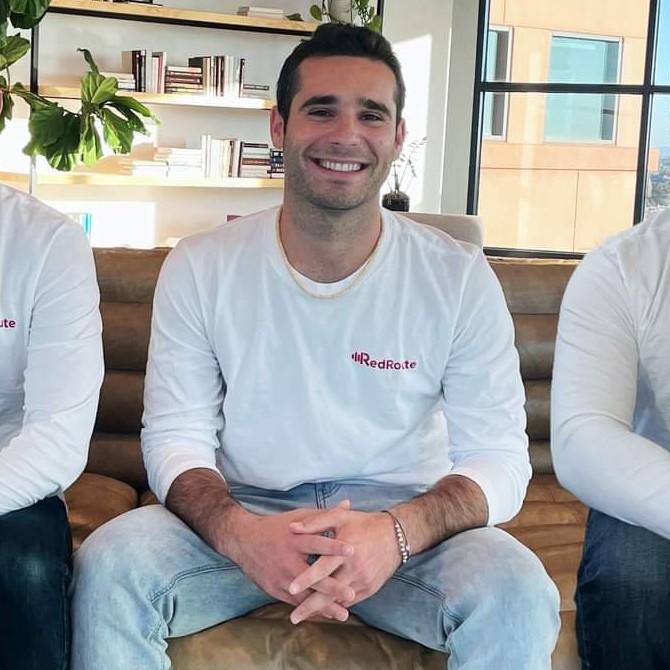
Brian Schiff
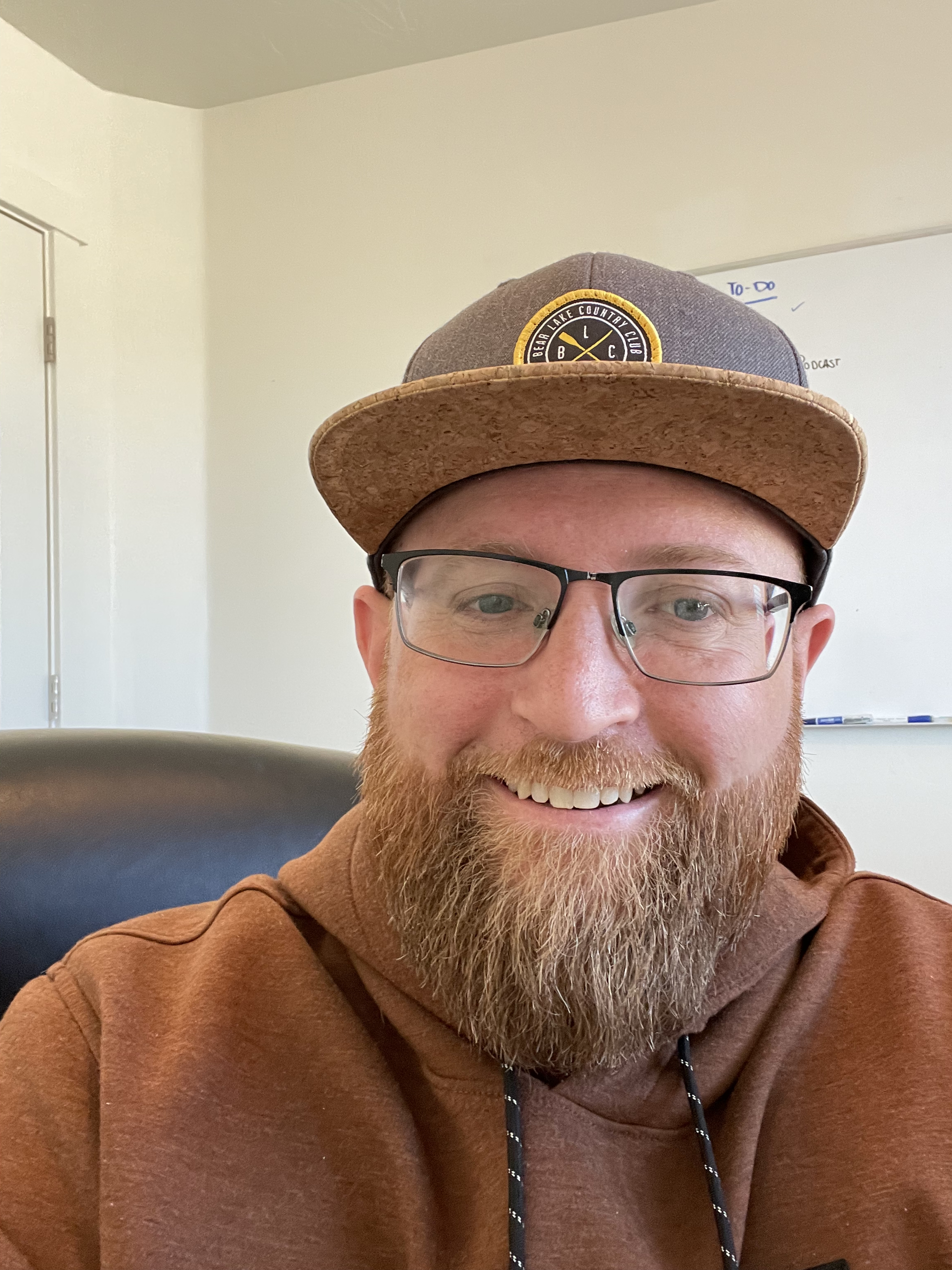
James Gilbert
Today's Guests

